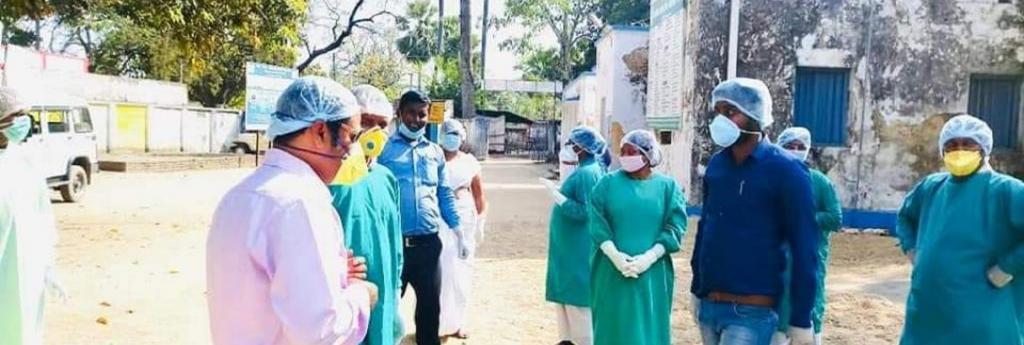

Speaking, coughing, sneezing can lead to virus transmission: CDC



The World Health Organisation (WHO) April 3, 2020 indicated for the first time it might revise guidelines on wearing masks in public amid the novel coronavirus disease (COVID-19) pandemic. Soon after, United States President Donald Trump announced the Centers for Disease Control and Prevention (CDC) now recommends the use masks even for those not unwell or caregivers.
Some countries, including Austria, Slovakia and the Czech Republic, have made masks mandatory. The Indian Council of Medical Research hasn’t yet recommended wearing masks in public.
WHO had maintained since the pandemic broke that only the sick, caregivers and frontline healthcare workers needed to put on masks to protect themselves against the SARS-CoV-2 virus.
At the April 3 briefing, however, the United Nations health organ said it would support governments in deciding for wider use of masks, based on their situations and resources at disposal.
A few hours after this, the CDC said recent underscored that recent studies showed a significant number of asymptomatic or pre-symptomatic people could transmit the virus to others before showing symptoms. This can happen through speaking, coughing or sneezing.
According to the US health protection agency’s revised guidelines:
In light of this new evidence, CDC recommends wearing cloth face coverings in public settings where other social distancing measures are difficult to maintain (eg, grocery stores and pharmacies) especially in areas of significant community-based transmission.
The public in general, however, did not need N95 masks, according to both the CDC as well as Mike Ryan, executive director of WHO’s health emergencies programme.
Both the WHO official and the CDC, however, emphasised that the public didn’t need N95 respirators or surgical masks. They were already in short supply and should be reserved for frontline workers.
Common people, instead, should use cloth-based or homemade masks.
Cloth face coverings made from household items or made at home from common materials at low cost can be used as additional measure, the CDC said. It was voluntary, it added.
The WHO also seemed open to the idea. “We can certainly see circumstances in which homemade or cloth masks at community level may help in overall response in combating the disease,” Ryan said.
He, however, maintained that: “One study in Singapore said 6 per cent are pre-symptomatic cases. But the fact remains 94 per cent were not. Therefore, we do not think that asymptomatic or pre-symptomatic cases were drivers of infection.”
The debate has been the leading cause of recommendation or no recommendation of wearing masks in general.
“This debate of wearing a mask in general is not built on the paradigm of protecting yourself. The evidence is quite clear that wearing a mask in public does not necessarily protect you,” Ryan said.
He emphasised the need for preventive steps like handwashing and social-distancing.
We are a voice to you; you have been a support to us. Together we build journalism that is independent, credible and fearless. You can further help us by making a donation. This will mean a lot for our ability to bring you news, perspectives and analysis from the ground so that we can make change together.
India Environment Portal Resources :

Comments are moderated and will be published only after the site moderator’s approval. Please use a genuine email ID and provide your name. Selected comments may also be used in the ‘Letters’ section of the Down To Earth print edition.